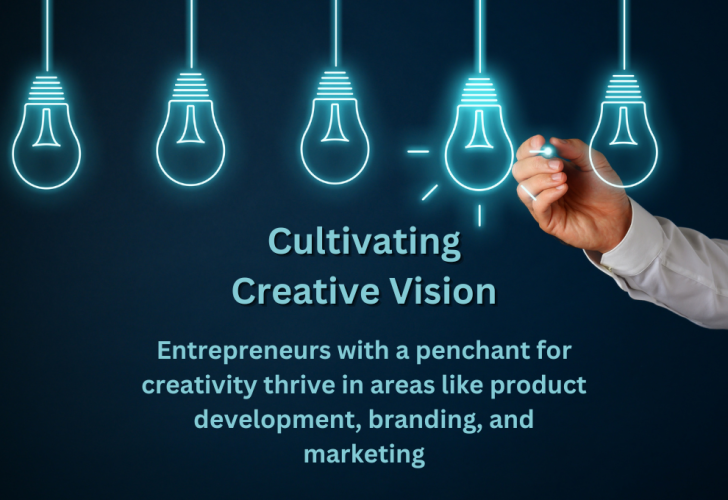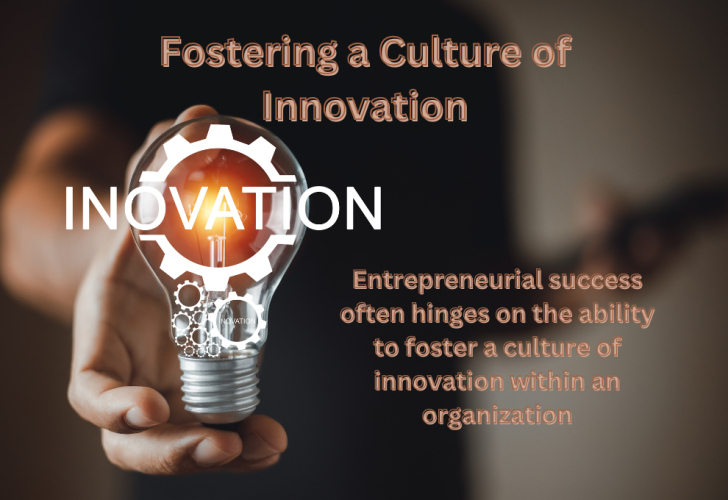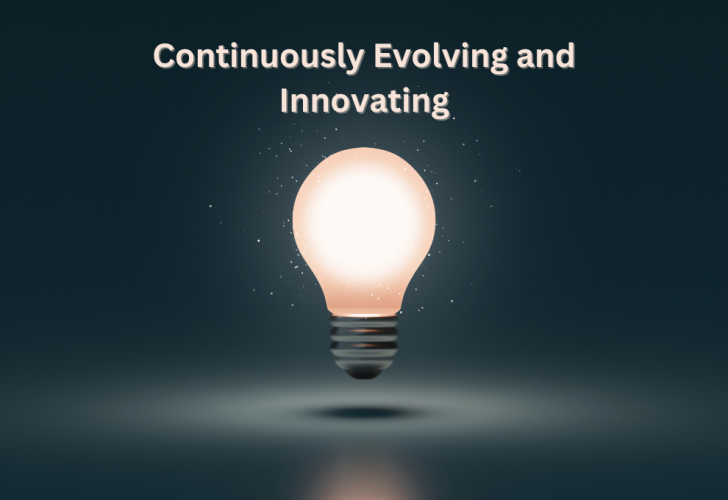
Unlocking Entrepreneurial Success: Balancing Left Brain and Right Brain Strategies.

Introduction:
In the dynamic landscape of entrepreneurship, success often hinges on the ability to navigate the complexities of business with a blend of analytical rigor and creative flair. Understanding the interplay between left brain and right brain strategies can unlock a wealth of opportunities for aspiring entrepreneurs. Let's delve into how balancing these two hemispheres of the brain can lead to entrepreneurial triumph.
1. Embracing Analytical Precision:
Left brain dominance brings forth qualities of logic, analysis, and rationality. Entrepreneurs with a strong left brain inclination excel in tasks such as strategic planning, financial management, and market research. By leveraging analytical precision, they can make data-driven decisions that propel their ventures forward. Embracing analytical precision involves methodically dissecting complex problems to uncover underlying patterns and insights. It requires a meticulous attention to detail and a commitment to accuracy in data interpretation and analysis.
Entrepreneurs adept at analytical precision leverage tools and techniques to distill vast amounts of information into actionable insights. By rigorously testing hypotheses and scrutinizing assumptions, they mitigate risks and optimize decision-making processes. Embracing analytical precision empowers entrepreneurs to make informed choices, allocate resources efficiently, and stay ahead of the competition in today's data-driven business landscape.
2. Cultivating Creative Vision:

On the other hand, right brain dominance fosters creativity, intuition, and innovation. Entrepreneurs with a penchant for creativity thrive in areas like product development, branding, and marketing.They possess the ability to envision groundbreaking ideas and translate them into tangible offerings that captivate their target audience.
Cultivating creative vision involves fostering an environment that encourages curiosity, exploration, and experimentation. Entrepreneurs with a keen focus on creative vision embrace ambiguity as an opportunity for innovation and discovery.They draw inspiration from diverse sources, from art and literature to nature and technology, to fuel their imaginative pursuits.
Cultivating creative vision requires the courage to challenge conventional wisdom, disrupt the status quo, and pioneer new frontiers. By nurturing their creative instincts and fostering a culture of open-mindedness and collaboration, entrepreneurs can unleash the full potential of their creative vision and drive transformative change in their industries.
3. Integrating Logic with Imagination:
Successful entrepreneurs recognize the importance of integrating left brain logic with right brain imagination. By marrying analytical thinking with creative ideation, they can devise inventive solutions to complex challenges and differentiate themselves in competitive markets. Integrating logic with imagination involves bridging the gap between practicality and possibility, merging the realms of what is and what could be.
Entrepreneurs adept at this integration balance the structured frameworks of logic with the boundless exploration of imagination to craft innovative solutions.They recognize that while logic provides the roadmap, imagination serves as the compass, guiding them toward uncharted territories of innovation.
By seamlessly blending logic with imagination, entrepreneurs can create products and services that not only meet the demands of the present but also anticipate the needs of the future.This integration empowers entrepreneurs to envision bold visions, devise strategic plans, and execute with precision, propelling their ventures to new heights of success and impact.
4. Fostering a Culture of Innovation:

Entrepreneurial success often hinges on the ability to foster a culture of innovation within an organization. By encouraging employees to tap into both their left and right brain capacities, entrepreneurs can nurture a dynamic environment where fresh ideas flourish and transformative breakthroughs emerge. Fostering a culture of innovation requires creating an environment where experimentation is encouraged, failure is embraced, and learning is celebrated.
Entrepreneurs who prioritize innovation empower employees to voice their ideas, experiment with new approaches, and challenge the status quo.They cultivate a sense of psychological safety where individuals feel comfortable taking risks and sharing unconventional perspectives without fear of judgment or reprisal. By fostering cross-functional collaboration and diversity of thought, entrepreneurs can harness the collective intelligence of their teams to generate groundbreaking ideas and drive meaningful change.
A culture of innovation is characterized by agility, adaptability, and a relentless pursuit of excellence, enabling entrepreneurs to stay ahead of the curve and shape the future of their industries.
5. Adapting to Changing Trends:
In today's rapidly evolving business landscape, agility is key to staying ahead of the curve. Entrepreneurs who can balance left brain strategic planning with right brain adaptability are better equipped to navigate shifting market trends and capitalize on emerging opportunities. Adapting to changing trends involves a proactive approach to monitoring market dynamics, consumer preferences, and technological advancements.
Entrepreneurs who excel in this aspect remain vigilant, constantly scanning the horizon for emerging trends and disruptive forces that could impact their business.They embrace flexibility and agility, readily adjusting their strategies, products, and services to align with evolving market demands and customer expectations.
Adapting to changing trends requires a willingness to pivot, iterate, and innovate in response to shifting circumstances, rather than clinging to outdated approaches or business models. By staying nimble and responsive, entrepreneurs can position themselves as industry leaders, seize new opportunities, and sustain long-term success in a rapidly changing business landscape.
6. Embracing Risk with Calculated Precision:

While entrepreneurship inherently involves risk, successful entrepreneurs approach risk-taking with a blend of left brain caution and right brain daring. By conducting thorough risk assessments and embracing calculated risks, they can seize new ventures with confidence while mitigating potential pitfalls.
Embracing risk with calculated precision involves conducting thorough risk assessments to evaluate potential outcomes and determine the optimal course of action. Entrepreneurs who excel in this aspect strike a delicate balance between boldness and prudence, weighing the potential rewards against the inherent uncertainties.They leverage data-driven insights and industry expertise to inform their risk management strategies, minimizing exposure to unforeseen hazards while maximizing opportunities for growth.
Embracing risk with calculated precision requires a mindset of resilience and adaptability, enabling entrepreneurs to navigate setbacks and capitalize on unexpected opportunities that arise along the way. By embracing risk as an essential component of innovation and growth, entrepreneurs can position themselves for success in competitive markets and drive sustainable value creation for their stakeholders.
7. Harnessing the Power of Intuition:
Intuition, often associated with right brain dominance, plays a pivotal role in entrepreneurial decision-making. Seasoned entrepreneurs trust their instincts and intuition to guide them through ambiguity, enabling them to make swift yet informed choices in high-stakes situations. Harnessing the power of intuition involves tapping into one's inner wisdom and gut instincts to guide decision-making in ambiguous or uncertain situations.
Entrepreneurs who trust their intuition cultivate a deep sense of self-awareness and emotional intelligence, allowing them to navigate complex challenges with confidence and clarity. Intuition serves as a valuable compass, providing insights and perspectives that may not be immediately apparent through rational analysis alone.
By honing their intuitive abilities, entrepreneurs can swiftly identify opportunities, anticipate potential obstacles, and make decisions aligned with their values and long-term vision.Ultimately, harnessing the power of intuition empowers entrepreneurs to make bold choices, seize transformative opportunities, and chart a course toward success with conviction and purpose.
8. Leveraging Data for Strategic Insights:

Data-driven decision-making is a hallmark of left brain dominance. Entrepreneurs adept at analyzing market data, consumer behavior, and performance metrics gain valuable insights that inform strategic direction and drive business growth. Leveraging data for strategic insights involves collecting, analyzing, and interpreting relevant information to inform decision-making and drive business growth.
Entrepreneurs who excel in this aspect harness the power of data analytics tools and technologies to extract actionable insights from large and diverse datasets.They adopt a systematic approach to data-driven decision-making, using key performance indicators (KPIs) and metrics to track progress and identify areas for improvement.
By leveraging data for strategic insights, entrepreneurs gain a deeper understanding of market trends, customer behavior, and competitive dynamics, enabling them to make informed and timely decisions.Ultimately, data-driven decision-making empowers entrepreneurs to optimize resource allocation, mitigate risks, and capitalize on opportunities, driving sustainable value creation and competitive advantage.
9. Inspiring Innovation Through Collaboration:
Collaboration lies at the heart of innovation. Entrepreneurs who foster collaborative environments where diverse perspectives converge can harness the collective genius of their teams to generate groundbreaking ideas and drive transformative change. Inspiring innovation through collaboration involves fostering an inclusive environment where diverse perspectives are valued, and ideas are freely exchanged.
Entrepreneurs who prioritize collaboration create cross-functional teams that bring together individuals with complementary skills and expertise.They encourage open communication, constructive feedback, and brainstorming sessions to spark creativity and drive collective problem-solving.
By fostering a culture of collaboration, entrepreneurs leverage the collective intelligence of their teams to generate innovative solutions and drive continuous improvement. Ultimately, inspiring innovation through collaboration cultivates a sense of ownership and shared purpose among team members, fostering engagement, loyalty, and a collective commitment to organizational success.
10. Balancing Short-Term Gains with Long-Term Vision:

Entrepreneurial success requires striking a delicate balance between short-term gains and long-term vision. By combining left brain focus on immediate objectives with right brain foresight, entrepreneurs can chart a course for sustainable growth while remaining agile in the face of evolving challenges. Balancing short-term gains with long-term vision requires entrepreneurs to strike a harmonious equilibrium between immediate profitability and sustainable growth.
Entrepreneurs who excel in this aspect resist the temptation of short-term wins that may compromise their long-term strategic objectives.They adopt a strategic mindset, prioritizing investments and initiatives that align with their overarching vision and mission. By balancing short-term gains with long-term vision, entrepreneurs cultivate resilience and endurance, positioning themselves for enduring success in dynamic and evolving markets.
Ultimately, the ability to balance short-term gains with long-term vision empowers entrepreneurs to navigate uncertainty, seize opportunities, and create lasting value for stakeholders and society as a whole.
11. Embracing Failure as a Stepping Stone to Success:
Failure is an inevitable part of the entrepreneurial journey. However, resilient entrepreneurs view failure not as a setback but as a valuable learning opportunity. By embracing failure with humility and resilience, they iterate, adapt, and ultimately emerge stronger and more resilient than before.
Embracing failure as a stepping stone to success involves reframing setbacks as valuable learning experiences that fuel personal and professional growth. Entrepreneurs who embrace failure cultivate a growth mindset, viewing challenges as opportunities for introspection, adaptation, and resilience.
The that failure is not a reflection of their worth but a natural part of the entrepreneurial journey, paving the way for innovation and progress. By embracing failure with humility and perseverance, entrepreneurs build the courage to take calculated risks and pursue ambitious goals with unwavering determination.Ultimately, embracing failure as a stepping stone to success empoweey recognizrs entrepreneurs to iterate, evolve, and ultimately emerge stronger and more resilient on the path to achieving their dreams.
12. Continuously Evolving and Innovating:

In the ever-evolving landscape of entrepreneurship, success is not static but dynamic. Entrepreneurs who embrace a growth mindset and a willingness to continuously learn, innovate, and evolve are poised to thrive amidst uncertainty and forge a path to enduring success. Embracing failure encourages entrepreneurs to confront their fears, challenge their assumptions, and embrace uncertainty as a catalyst for growth.
Entrepreneurs who embrace failure understand that setbacks are not endpoints but opportunities to pivot, innovate, and redefine their path to success. They leverage failure as a source of motivation, channeling setbacks into fuel for perseverance, determination, and relentless pursuit of their goals.
By embracing failure as an integral part of the entrepreneurial journey, entrepreneurs cultivate resilience, adaptability, and an unwavering commitment to their vision. Ultimately, embracing failure as a stepping stone to success fosters a culture of experimentation, continuous improvement, and fearless innovation, driving sustainable growth and enduring success.
13. Nurturing a Dynamic Mindset:
Entrepreneurship is a journey of continuous learning and growth. By cultivating a dynamic mindset that embraces both left brain pragmatism and right brain creativity, entrepreneurs can adapt to changing circumstances, seize opportunities, and thrive in the face of adversity. Nurturing a dynamic mindset involves cultivating curiosity, adaptability, and a willingness to embrace change as opportunities for growth.
Entrepreneurs who nurture a dynamic mindset approach challenges with an open-minded attitude, viewing obstacles as chances to learn and evolve.They seek out diverse perspectives, new experiences, and continuous learning opportunities to expand their horizons and fuel their personal and professional development.
By fostering a dynamic mindset, entrepreneurs break free from limiting beliefs and embrace the possibilities of the unknown, unlocking their full potential and creativity. Ultimately, nurturing a dynamic mindset empowers entrepreneurs to navigate uncertainty with confidence, resilience, and a sense of purpose, driving innovation and success in their entrepreneurial endeavors.
14. Empowering a Diverse Team:

Entrepreneurial success is not a solitary pursuit but a collaborative endeavor. By assembling a diverse team with a range of skills, perspectives, and cognitive styles, entrepreneurs can harness the collective intelligence of their workforce and foster innovation at every level of the organization. Empowering a diverse team involves fostering an inclusive culture where individuals from varied backgrounds feel valued, respected, and empowered to contribute their unique perspectives.
Entrepreneurs who prioritize diversity recognize that a heterogeneous team brings a breadth of experiences, insights, and innovative solutions to the table.They cultivate an environment of trust and psychological safety, where team members feel comfortable expressing themselves authentically and taking calculated risks.
By empowering a diverse team, entrepreneurs tap into the collective intelligence and creativity of their workforce, driving innovation and fostering a culture of collaboration and belonging. Ultimately, empowering a diverse team not only strengthens organizational performance but also promotes social equity, inclusion, and sustainable growth in the broader community.
15. Embracing Failure as Feedback:
Failure is not the opposite of success but rather a stepping stone to it. Entrepreneurs who view failure as valuable feedback, iterate on their ideas, and pivot when necessary are better positioned to achieve sustainable success in the long run. Embracing failure as feedback involves reframing setbacks as valuable information that illuminates areas for improvement and growth.
Entrepreneurs who embrace failure as feedback adopt a mindset of curiosity and humility, viewing each setback as an opportunity to learn and iterate. They approach failure with a spirit of resilience, recognizing that setbacks are not permanent roadblocks but temporary detours on the path to success.
By embracing failure as feedback, entrepreneurs cultivate a culture of continuous improvement, innovation, and relentless pursuit of excellence. Ultimately, embracing failure as feedback empowers entrepreneurs to adapt, evolve, and emerge stronger and more resilient, equipped with the insights and lessons needed to thrive in the face of adversity.
16. Striving for Balance in Life and Work:

While entrepreneurship demands dedication and perseverance, it's essential to strike a balance between professional ambition and personal well-being. By nurturing hobbies, relationships, and self-care practices, entrepreneurs can recharge their creative energies and sustain long-term success. Striving for balance in life and work involves prioritizing self-care, personal relationships, and hobbies alongside professional responsibilities.
Entrepreneurs who prioritize balance recognize that sustained success requires maintaining physical, mental, and emotional well-being. They set boundaries and establish routines that allow for dedicated time to recharge, unwind, and pursue activities outside of work. By striving for balance, entrepreneurs foster greater productivity, creativity, and fulfillment in both their personal and professional lives.
Ultimately, achieving balance in life and work enables entrepreneurs to lead happier, healthier, and more sustainable lifestyles, enhancing their overall quality of life and well-being.
17. Leading with Authenticity and Purpose:
Authentic leadership rooted in values and purpose inspires trust, loyalty, and commitment among employees and stakeholders. By leading with integrity, empathy, and a clear sense of purpose, entrepreneurs can cultivate a positive organizational culture and drive meaningful impact in the world. Leading with authenticity and purpose involves aligning actions with core values, beliefs, and intentions, fostering trust and credibility among stakeholders.
Entrepreneurs who lead with authenticity embrace vulnerability, transparency, and genuine human connection, inspiring loyalty and commitment from their teams.They articulate a compelling vision that resonates with their values and ignites a sense of purpose among employees, driving motivation and engagement.
By leading with authenticity and purpose, entrepreneurs cultivate a culture of integrity, accountability, and ethical decision-making, fostering long-term success and sustainability. Ultimately, leading with authenticity and purpose empowers entrepreneurs to make a meaningful impact in the world, leaving a legacy that extends far beyond financial success.
18. Paying It Forward Through Mentorship:

Entrepreneurial success is often fueled by the guidance and support of mentors who have walked the path before. By paying it forward and mentoring aspiring entrepreneurs, successful business leaders can contribute to the growth and prosperity of future generations of innovators. Paying it forward through mentorship involves sharing knowledge, experiences, and wisdom with aspiring entrepreneurs, empowering them to navigate challenges and seize opportunities.
Entrepreneurs who pay it forward recognize the transformative impact of mentorship in shaping the next generation of innovators and leaders. They invest time and energy in cultivating meaningful relationships with mentees, providing guidance, support, and encouragement along their entrepreneurial journey.
By paying it forward through mentorship, entrepreneurs contribute to the growth and prosperity of future generations, fostering a culture of collaboration and knowledge-sharing within the entrepreneurial community. Ultimately, paying it forward through mentorship is a powerful way for entrepreneurs to leave a lasting legacy, inspiring others to achieve their full potential and make a positive difference in the world.
19. Celebrating Milestones and Acknowledging Growth:
In the pursuit of entrepreneurial success, it's important to celebrate milestones, no matter how small, and acknowledge the journey traveled thus far. By reflecting on achievements, learning from setbacks, and expressing gratitude for the support received along the way, entrepreneurs can cultivate a sense of fulfillment and purpose in their endeavors.
Celebrating milestones and acknowledging growth involves recognizing and honoring the progress made on the entrepreneurial journey, no matter how big or small. Entrepreneurs who prioritize celebrating milestones foster a culture of appreciation, gratitude, and positivity within their teams and organizations. They understand the importance of acknowledging individual and collective achievements, boosting morale, and reinforcing a sense of accomplishment.
By celebrating milestones and acknowledging growth, entrepreneurs inspire motivation, resilience, and a shared sense of purpose among their team members. Ultimately, celebrating milestones and acknowledging growth not only fosters a culture of success but also cultivates a supportive and rewarding environment where everyone feels valued and empowered to excel.
Conclusion:
Unlocking entrepreneurial success requires a delicate balance of left brain and right brain strategies, integrating analytical rigor with creative vision, and fostering a culture of innovation, collaboration, and resilience. By embracing diversity, learning from failure, nurturing a dynamic mindset, and leading with authenticity and purpose, entrepreneurs can chart a course for sustainable growth, personal fulfillment, and enduring success in the ever-evolving landscape of entrepreneurship.
Balancing left brain and right brain strategies is the cornerstone of entrepreneurial success in today's fast-paced and competitive business environment. By harnessing the complementary strengths of analytical rigor and creative vision, entrepreneurs can unlock new opportunities, drive innovation, and chart a course for sustainable growth and prosperity.
(1).jpg)
About: Andries vanTonder
Over 40 years selfemployed
He is a Serial Entrepreneur, an Enthusiastic supporter of Blockchain Technology and a Cryptocurrency Investor.
Find me: Markethive Profile Page | My Twitter Account | My Instagram Acount | and my Facebook Profile.
